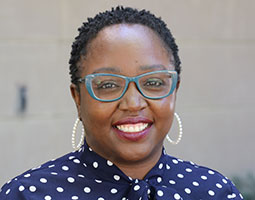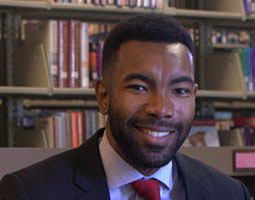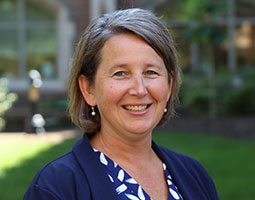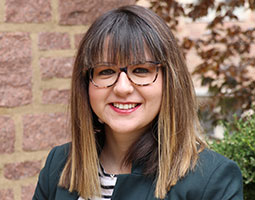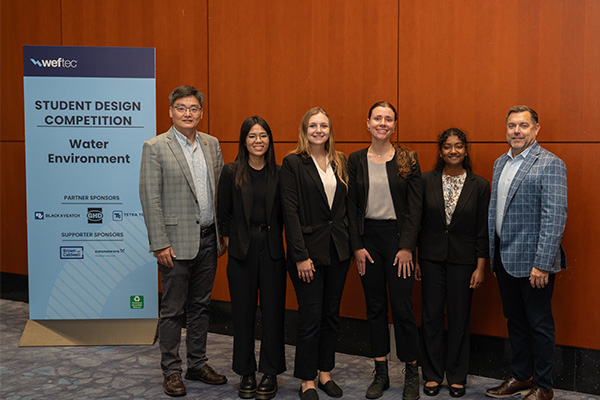New advising team to strengthen student support systems
Undergraduate Student Services has reorganized its staff as part of an overall effort to provide better academic support to students
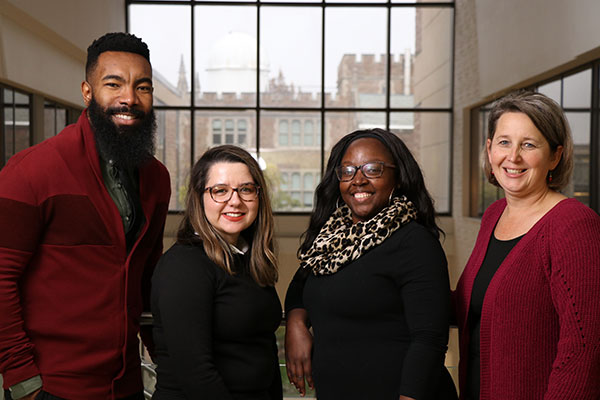
Undergraduate Student Services in the McKelvey School of Engineering has experienced a major reorganization of its staff and services in the past two years.
While some changes were necessary due to departing personnel, the office took the opportunity to make intentional adjustments to their services. Lisa Gillis-Davis, senior assistant dean, joined Undergraduate Student Services in August and is leading a new team focused on developing student support initiatives.
“Chris Kroeger looked strategically at the student body profile and where the needs are,” Gillis-Davis said. Kroeger is the associate dean for Undergraduate Student Services. “He created our arm of student support, and underrepresented student groups and first-year students are our focus.”
The new team consists of Gillis-Davis and three other staff members, each focusing on specific strategies to improve student support: Jessica Allen, academic adviser; LaVeasey Carter, assistant dean; and Ashleigh Goedereis, assistant dean.
“One of the areas I'll be focusing on is the early alert process and establishing a better way of communicating with faculty,” Allen said. “That'll give us an opportunity to look at the populations that may be part of that alert process.”
Allen said the team was especially interested in non-academic warning signs, such as frequent absences, that faculty may observe in students at risk for academic probation.
“There are some faculty who have experience in recognizing warning signs that a student may be unsuccessful, but there are others who only see a failing student and may not look at those other indicators,” Allen said. “That's the purpose of that early alert: To help us have better conversations on how we can support those students.”
Carter is assisting with the early alert process, as well as examining how the office works with students on academic probation and developing the school’s first-year bridge program.
Currently, the College of Arts & Sciences organizes the First-Year Summer Academic Program (FSAP), which helps incoming first-year students, including Engineering students, transition to college. The program is aimed at academically capable students who may be first-generation or who come from high schools without access to Advanced Placement or International Baccalaureate courses.
“We’re talking about whether we want to beef up that program on the engineering side to best meet the needs of our students,” Carter said. “We're going to meet with Admissions to find out how they're choosing those students.”
Goedereis works closely with first-generation students and has established a formal group where students can find support and community. She's also taken over organizing a mentorship program that partners first-generation undergraduate students with first-generation doctoral students.
“We meet monthly as a group, have dinner and try to bring in faculty for talks,” Goedereis said. “We’re hoping to build out this first-generation initiative.”
Building connections and community, especially with first-year students, is an important goal for this team, according to Carter.
“As upperclassmen, they only need to meet with their faculty adviser so they may not meet with us as much,” he said. “The more they can connect with us as first-years, the more likely they are to continue to stay connected when they don’t have to.”
As they continue to adapt to student needs, Gillis-Davis said the team will pull enrollment and academic data to ensure they’re meeting students where they are.
“We have a lot of first-generation, limited-income and students of different ethnic backgrounds,” Gillis-Davis said. “Knowing what majors they pursue and their retention rate may drive more specific actions and support in the future.”

